As global industries expand operations into remote regions, accommodating non-local employees presents unique challenges. A mining company in northern Mozambique tapped Lida Group to rapidly deliver cluster housing, sanitation facilities and storage using prefabricated construction methods tailored to the local context. Outcomes demonstrate benefits of standardized, modular techniques for dignified worker settlements in isolated worksites.
Mozal, a large aluminum smelting plant, sought to house construction workers upgrading its extraction and processing facilities located several hours from the nearest city. Extreme heat, flooding risks and logistical hurdles required durable, conveniently sized buildings resistant to weather extremes. Importantly, structures should uphold Mozal’s commitment to worker welfare through providing comfortable living amenities.
Project managers selected Lida Group for its expertise delivering complete campsite infrastructure through prefabricated modular construction. Benefits included reduced schedule, optimized transportation and simplified on-site assembly suitable for remote erection without specialist trades. Standardized designs also ensured consistency meeting international quality and safety standards across a 100-unit housing cluster.
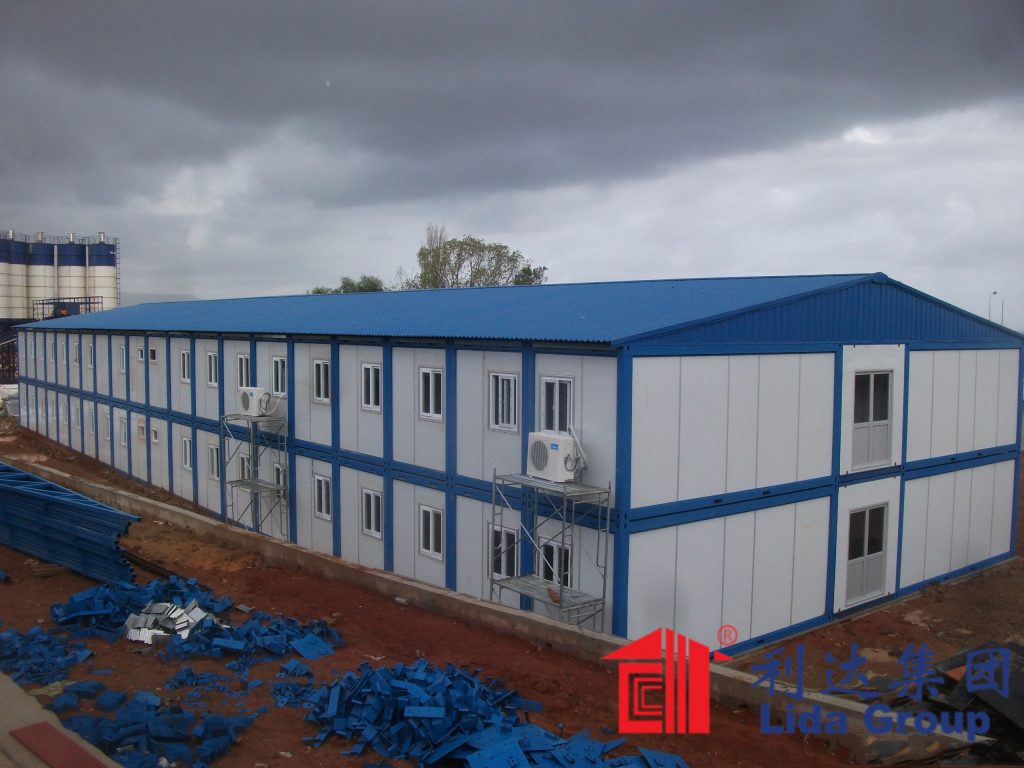
Housing units incorporated Lida Group’s prefabricated modular wall panels, floors and roof assemblies manufactured off-site in controlled factory conditions. Wall elements consisted of sandwiched galvanized steel skins for corrosion resistance enclosing rigid polyisocyanurate foam insulation. Factory-fitted windows, doors and interior finishes installed into panels prior to shipping protected components.
Panels measured 3m x 2.4m for simplified on-site handling and connection. Through pre-attached connectors, a four-person crew could erect a 20m2 housing module from bare foundation to lockup in just 3 days using basic hand tools. Larger clusters combined several standardized modules into one- or two-bedroom apartments through simple bolting at pre-determined splice locations.
Modular kitchenettes and bathrooms installed similarly using pre-plumbed, wired and surfaced pods. Integrated fixtures required only final hookups. Refuse and laundry buildings employed the same panelized construction approach scaled to appropriate sizes. All structures stood on concrete plinths suited to seasonal flooding and protected from termites through isolation from direct ground contact.
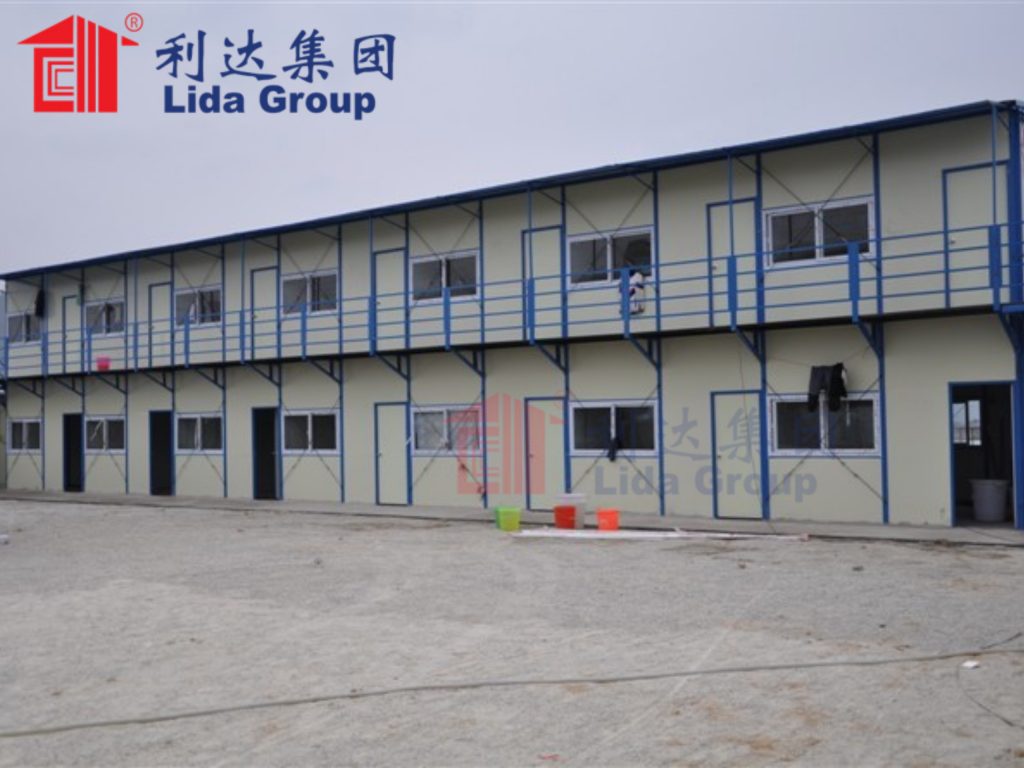
Central sanitation blocks provided shower, toilet and laundry facilities shared between clusters. Divided male/female wings contained 12 cubicles each accessed via prefabricated galvanized steel/concrete composite walls and roof. Flow-through ventilation eliminated contaminants and condensation commonly witnessed using traditional site-built structures.
General storage barns housed tools, equipment and supplies for timely access. Constructed from Lida Group’s standardized open-web steel joist structural panels, large span clearspan sheds enclosed volumes up to 600m2 without internal columns. Rolled roofing and pre-painted corrugated metal wall panels provided low-maintenance, watertight enclosures.
Engineered plans allowed all buildings to fit widths of access roads through the remote mine site. Off-site prefabrication let components arrive on just-in-time delivery trucks without requiring multiple or oversized vehicle shipments. Factory finishing procedures completed prior ensured rapid erection without site-based wet trades vulnerable to weather delays.
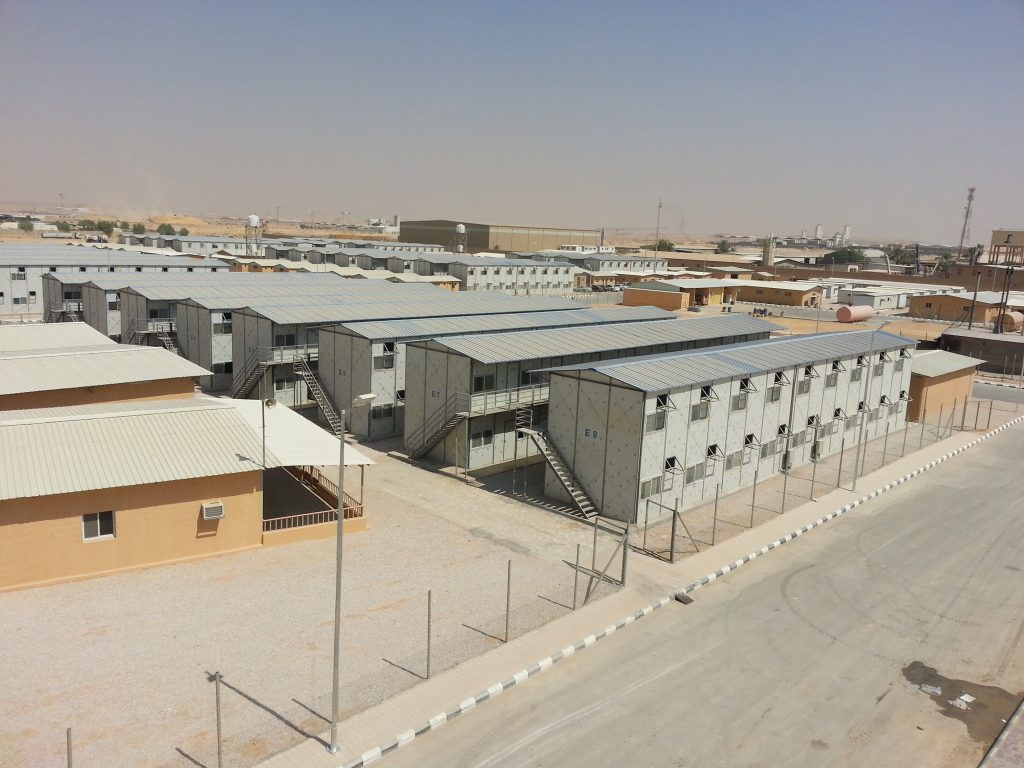
Erection occurred continuously across several crews aided through Lida Group’s training with step-by-step erection manuals and video guidance. Foundation contractors collaborated with panel installers to seamlessly transition each stage. Within four months, all 100 housing units, 3 sanitation buildings and 7 storage structures stood complete—half the projected schedule for traditional construction.
Precise CNC cutting factory produced straight, plumb, square panels requiring minimal field fitting. Connectors and integrated structures sped assembly without complex joinery. Buildings locked up weathertight immediately upon installation for convenient dry-in. Simple detailing like concealed fasteners maintained a smooth, uniform appearance befitting worker living areas.
Quality assurance checks during and post-construction found negligible issues thanks to factory-controlled production. Minimal maintenance costs are projected through the buildings’ 30-year design life due to galvanized finishes, rigid insulation and avoidance of complex in-field work prone to errors. Risks from weather disruptions affecting schedules or quality became non-factors through off-site prefabrication.
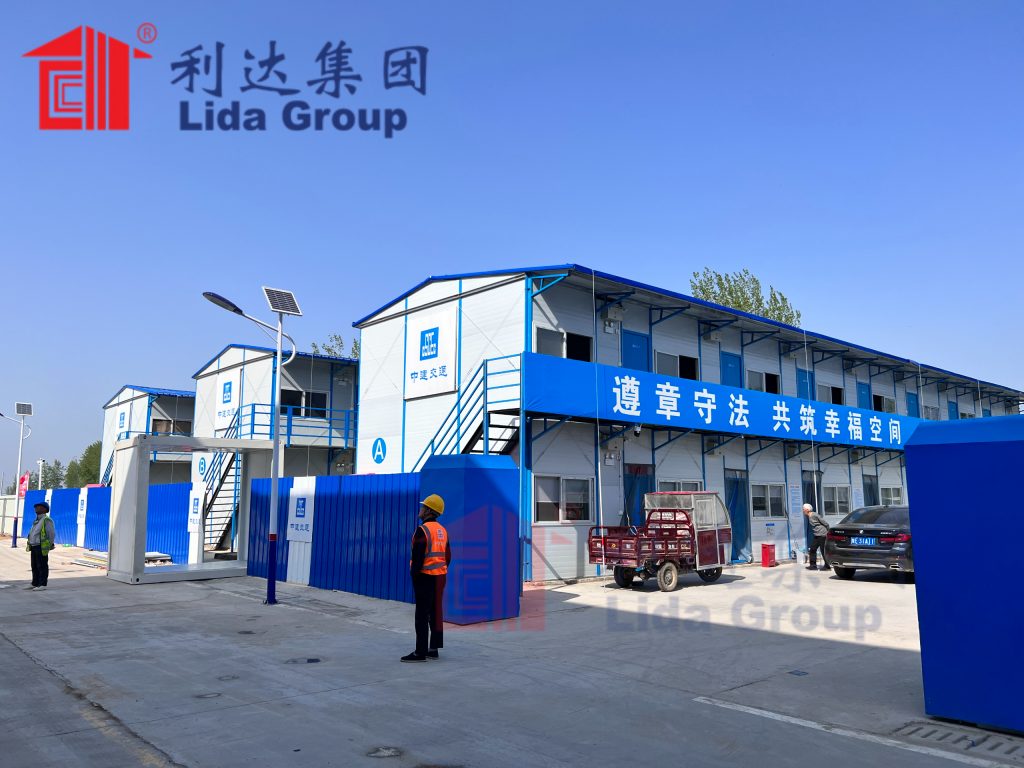
Workers report high satisfaction living in standardized yet meticulously finished private rooms and shared facilities. Centralized sanitation blocks with ample bathing stations prevent health issues compared to dispersed pit latrines. Large organized storage sheds protect equipment worth far more than incremental material costs. Project personnel value standardized designs easing expansion and ensuring consistent quality should facilities be replicated at additional sites.
Prefabricated modular construction has proven uniquely viable given this project’s remote location and scope. Strict schedules, transportation constraints, extreme climate and need for durability necessitated innovative solutions. Precut standardized panels addressed these challenges while providing dignified housing for workers residing lengthy stints away from family supporting critical infrastructure projects.
Methods like Lida Group’s modular panel technology warrant wider application for employee settlements across globally distributed industries facing parallel remoteness and logistical complications. When deployed strategically, prefabrication optimizes schedules, quality assurance and living standards—critical factors for any development reliant on non-local human resources stationed in isolated areas long-term. This pioneering application establishes a model benefiting industries and communities alike through dignified worker welfare using advanced off-site construction techniques.
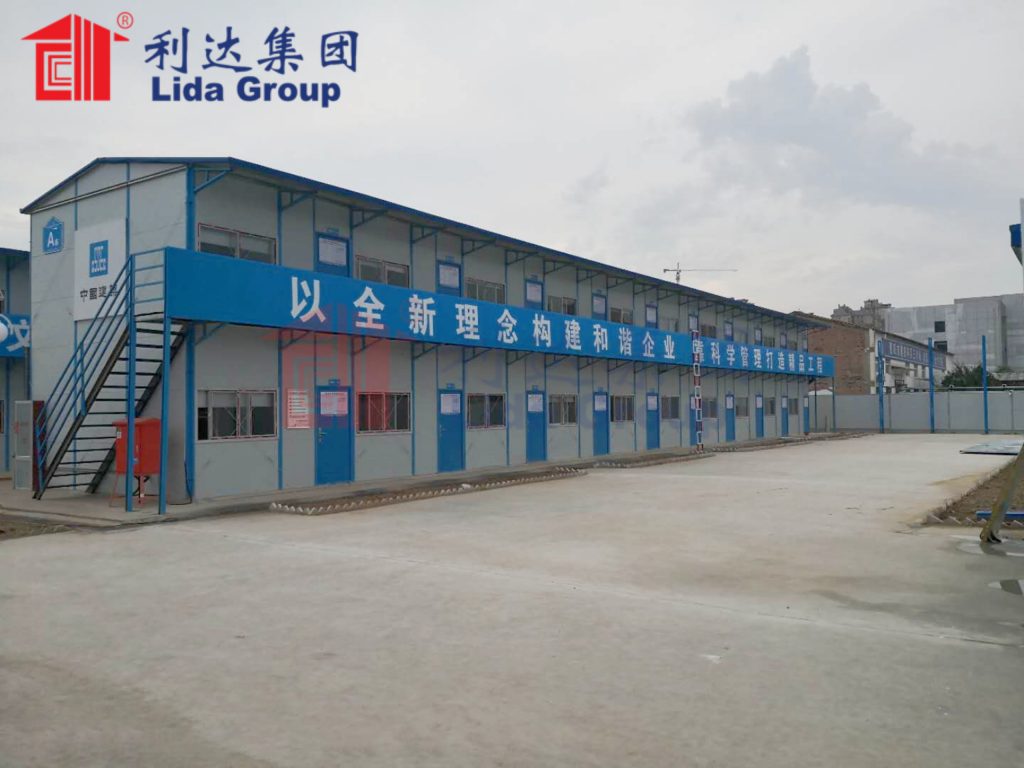
In summary, through deploying prefabricated modular construction customized to the remote mine site context, Lida Group’s innovative structural panel technologies have successfully delivered complete camps supporting over 100 workers. Standardized, precisely manufactured building components erected with minimal resources upheld priorities for accelerated schedules, durable designs suited to harsh environments, and consistent quality meeting international habitation standards through simplified assembly. Outcomes demonstrate benefits of off-site modular methods for dignified housing solutions adapted to employment needs in geographically challenging operational areas globally.

Related news
-
Conference introduces modular extensions enabling integrated on-site housing and processing for specialized crops using Lida Group's standardized steel framed and metal-paneled designs.
2024-07-18 17:41:11
-
Journal highlights the versatility showcased in pilot implementations of Lida Group's standardized steel structural solutions integrating livestock housing, seasonal worker dormitories and on-farm facilities
2024-07-17 17:57:49
-
Feature examines hybrid-use of metal-clad buildings like greenhouses, barns and covered work areas serving multiple agricultural functions through Lida Group's engineered frames.
2024-07-18 11:35:28
contact us
- Tel: +86-532-88966982
- Whatsapp: +86-13793209022
- E-mail: sales@lidajituan.com


